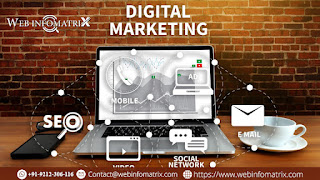The Future of Political Campaigns in the Digital Age
The future of political campaigns embraces AI, VR, and AR technologies, driving innovation, personalized outreach, and deeper voter engagement in the digital era.

The digital age has fundamentally transformed political campaigns, altering how candidates engage with voters, communicate their messages, and mobilize support. As technology continues to evolve, the future of political campaigns promises even greater innovation and complexity.
The Rise of Data Analytics
With vast amounts of data available from social media, voter registration databases, and online surveys, campaigns can gain insights into voter behaviour and preferences like never before. In the future, data analytics will become even more sophisticated, allowing campaigns to create highly targeted messages tailored to specific demographics. By understanding the nuances of voter sentiment, candidates can craft strategies that resonate deeply and effectively with their constituencies.
Enhanced Voter Engagement through Technology
As technology advances, so too do the methods by which campaigns engage with voters. Virtual town halls, live-streamed events, and interactive social media campaigns are already becoming standard practices. Looking ahead, we can expect an increase in the use of augmented reality (AR) and virtual reality (VR) to create immersive experiences that bring voters closer to candidates and issues. These technologies will enable campaigns to provide voters with firsthand experiences of policies and initiatives, fostering a deeper emotional connection and understanding.
The Impact of Social Media
Social media continues to play a crucial role in political campaigns, and its influence will only grow in the future. Platforms like Twitter, Facebook, and Instagram allow campaigns to communicate directly with voters, bypassing traditional media filters. The immediacy of social media enables candidates to respond to events in real time, shaping narratives as they unfold. However, this also presents challenges, as the rapid spread of misinformation can undermine trust in the political process. Campaigns must navigate this landscape carefully, prioritizing transparency and authenticity to build voter confidence.
The Role of Artificial Intelligence
Artificial intelligence (AI) is set to revolutionize political campaigning in numerous ways. From analyzing voter data to automating responses on social media, AI can streamline various aspects of campaign management. Predictive analytics will enable campaigns to anticipate voter behaviour and adjust strategies accordingly. Additionally, AI-driven tools can help identify key influencers and optimize ad placements, ensuring that campaign messages reach the right audiences at the correct times. As AI technology continues to advance, its applications in political campaigns will become more sophisticated and integral.
Personalized Messaging
The future of political campaigns will be characterized by increasingly personalized messaging. Gone are the days of one-size-fits-all advertisements; campaigns will leverage data and technology to create individualized outreach efforts. By understanding the preferences and concerns of specific voter segments, campaigns can tailor messages that resonate on a personal level. This approach not only enhances voter engagement but also fosters a sense of connection between candidates and their constituents.
The Importance of Ethical Considerations
As campaigns embrace new technologies and data-driven strategies, ethical considerations will come to the forefront. Issues related to data privacy, misinformation, and transparency must be addressed to maintain the integrity of the political process. Voters are becoming more aware of the ethical implications of data usage, and campaigns that prioritize responsible practices will likely gain a competitive advantage. Establishing clear guidelines and regulations will be essential in fostering a healthy political environment that respects voter rights and maintains public trust.
Grassroots Movements and Digital Activism
The digital age has empowered grassroots movements and digital activism, allowing ordinary citizens to mobilize support for causes and candidates. Social media platforms provide a space for collective action, enabling campaigns to tap into grassroots energy and enthusiasm. The future will see an even greater emphasis on mobilizing grassroots support through digital channels. Candidates who engage authentically with their communities and harness the power of digital activism will be better positioned to build momentum and drive voter turnout.
The Evolving Role of Traditional Media
While digital platforms dominate the political landscape, traditional media still holds significance. Newspapers, television, and radio remain vital sources of information for many voters. The future of political campaigns will involve a more integrated approach, where campaigns utilize both digital and traditional media to reach diverse audiences. Understanding the strengths and limitations of each medium will be crucial for crafting effective communication strategies that resonate across demographic divides.
Preparing for New Challenges
As the political landscape continues to evolve, campaigns will face new challenges that require adaptability and resilience. Cybersecurity threats, the potential for deepfake technology, and the rapid pace of technological change will necessitate a proactive approach. Campaigns must invest in security measures to protect their data and maintain the trust of their supporters. Additionally, developing strategies to combat misinformation and safeguard democratic processes will be essential for maintaining the integrity of elections.
The future of political campaigns in the digital age is characterized by innovation, complexity, and opportunity. As technology continues to reshape the political landscape, candidates must adapt to emerging trends and harness the power of data, social media, and new communication tools. By prioritizing ethical considerations and fostering genuine connections with voters, campaigns can navigate the challenges of the digital age while building a more engaged and informed electorate. Ultimately, the integration of technology into political campaigns holds the potential to strengthen democracy and empower citizens in unprecedented ways.
What's Your Reaction?





















